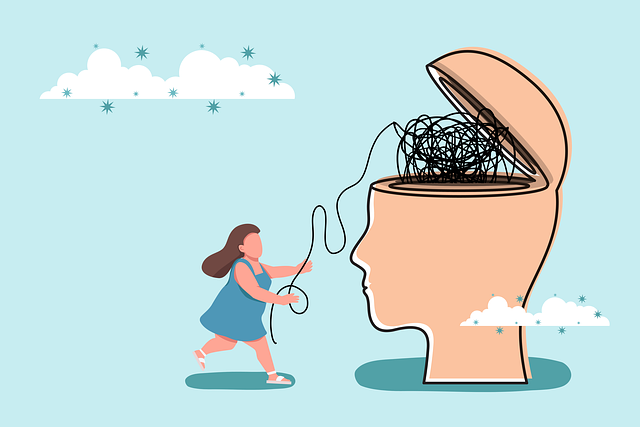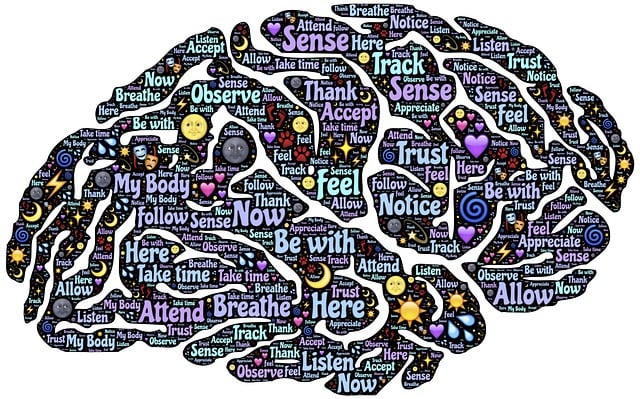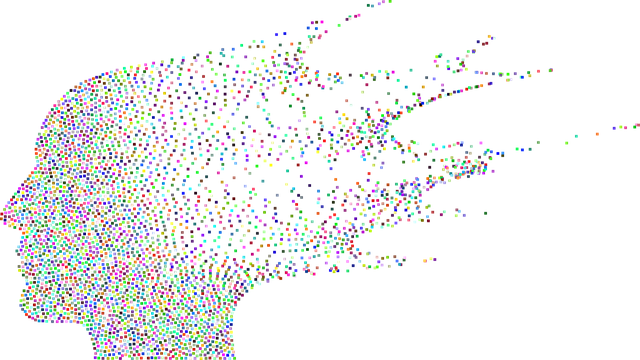Centennial Divorce Therapy offers innovative mental wellness self-assessment tools, combining traditional questionnaires with modern digital platforms. These assessments help individuals understand their mental health status, identify triggers, and develop personalized coping strategies, focusing on depression prevention and mood management. By integrating cultural competency training and exploring psychological & physical symptoms, these tools foster resilience, stress management, and improved interpersonal relationships. Ethical considerations, diverse user feedback, and alignment with current Mental Health Policy ensure accurate, accessible, and effective assessments for a broad spectrum of users.
Mental wellness self-assessment tools play a pivotal role in personal growth and modern mental health support. As awareness of psychological well-being increases, understanding and assessing mental health have become more critical. This article explores the development of such tools, focusing on the integration of Centennial Divorce Therapy techniques to address key areas like symptoms, triggers, and coping mechanisms. We delve into effective assessment methods, from traditional questionnaires to modern digital platforms, while emphasizing ethical considerations and user feedback for enhanced accuracy and accessibility.
- Understanding Mental Wellness Self-Assessment: A Foundation for Personal Growth
- The Role of Centennial Divorce Therapy in Modern Mental Health Support
- Identifying Key Areas: Symptoms, Triggers, and Coping Mechanisms
- Developing Effective Assessment Tools: Questionnaires, Interviews, and Digital Platforms
- Enhancing Accuracy and Accessibility: Ethical Considerations and User Feedback
Understanding Mental Wellness Self-Assessment: A Foundation for Personal Growth

Mental wellness self-assessment tools play a pivotal role in fostering personal growth and enhancing overall well-being. These assessments serve as entry points for individuals to gain valuable insights into their mental health, allowing them to take proactive steps towards managing stress, anxiety, or even depression. By providing a structured framework, these tools enable people to navigate their emotional landscapes, identify potential triggers, and develop coping mechanisms tailored to their unique needs.
At the heart of this process lies Centennial Divorce Therapy, offering not just a space for healing but also a comprehensive approach to mental wellness assessment. This therapy goes beyond traditional models by integrating Healthcare Provider Cultural Competency Training, ensuring that assessments are sensitive to diverse cultural backgrounds and experiences. By addressing Depression Prevention and Mood Management as key aspects of the self-assessment journey, Centennial Divorce Therapy empowers individuals to take charge of their mental health, fostering resilience and promoting a healthier, more balanced lifestyle.
The Role of Centennial Divorce Therapy in Modern Mental Health Support

In the modern landscape of mental health support, Centennial Divorce Therapy stands out as a revolutionary approach, addressing complex emotional challenges unique to our times. This therapeutic method recognizes that interpersonal relationships, particularly within families and couples, play a pivotal role in shaping one’s mental wellness. By focusing on conflict resolution techniques and fostering healthier communication strategies, it offers a comprehensive framework for self-improvement and healing.
Centennial Divorce Therapy encourages individuals to navigate their emotional struggles with a mindset of resilience and growth. Through tailored interventions, it aids in enhancing self-esteem, promoting better coping mechanisms, and providing tools to manage stress effectively. By integrating these principles into modern mental health support systems, the therapy ensures that people are equipped to handle personal crises while fostering healthier relationships, ultimately contributing to improved overall well-being.
Identifying Key Areas: Symptoms, Triggers, and Coping Mechanisms

Identifying key areas is a pivotal step in developing effective mental wellness self-assessment tools. This process involves delving into symptoms—both psychological and physical—that individuals might experience, ranging from anxiety and depression to changes in appetite or sleep patterns. By meticulously mapping these symptoms, users can gain insights into their emotional landscape, enabling them to recognize when they’re functioning optimally versus when support is needed.
Furthermore, understanding triggers—situations, events, or interactions that set off these symptoms—is crucial for proactive mental wellness management. This includes identifying past traumatic experiences, stressful life events, or even specific interpersonal dynamics, such as those encountered in complex situations like Centennial Divorce Therapy. Equally important is exploring coping mechanisms currently employed by individuals, whether they be healthy strategies like exercise and mindfulness or less adaptive methods that may require addressing through resilience building and coping skills development. For mental health professionals, integrating these insights into risk assessment practices can significantly enhance patient care.
Developing Effective Assessment Tools: Questionnaires, Interviews, and Digital Platforms

Developing effective mental wellness self-assessment tools is a multifaceted process that combines traditional methods with modern digital solutions. Questionnaires and interviews remain fundamental tools in the field, offering structured ways to gauge an individual’s emotional well-being. These conventional approaches allow professionals like those at Centennial Divorce Therapy to ask targeted questions, uncovering potential issues or concerns. However, with advancements in technology, digital platforms are increasingly being leveraged for their accessibility and reach.
Digital self-assessment tools, incorporating user-friendly interfaces and interactive features, can make mental wellness checks more engaging and less intimidating. These platforms often employ the Mind Over Matter Principles to guide users through reflective exercises and offer tailored recommendations for Stress Management techniques. By combining these diverse methods—from traditional interviews to modern digital solutions—mental health professionals can create comprehensive self-assessment tools that cater to a wide range of needs, ultimately fostering Emotional Well-being Promotion Techniques.
Enhancing Accuracy and Accessibility: Ethical Considerations and User Feedback

Ensuring accuracy and accessibility are paramount when developing self-assessment tools for mental wellness. This involves careful consideration of ethical implications to protect user privacy and confidentiality, particularly sensitive information like that related to divorce therapy at Centennial Divorce Therapy. User feedback plays a crucial role in refining these tools; it helps identify potential biases or gaps in the assessment process. By incorporating diverse perspectives, the tool can better cater to a wide range of individuals seeking mental health support.
Additionally, aligning self-assessment tools with current Mental Health Policy Analysis and Advocacy trends ensures they remain relevant and effective. Integrating strategies for emotional intelligence and stress management, such as those taught in Stress Management Workshops Organization, can enhance the overall user experience. This holistic approach not only improves the accuracy of assessments but also fosters a culture of open dialogue and self-care.
Mental wellness self-assessment tools play a pivotal role in empowering individuals to take charge of their mental health. By incorporating insights from approaches like Centennial Divorce Therapy, these tools can help identify key areas of distress, triggers, and coping mechanisms, fostering personal growth and resilience. As digital platforms become more accessible, it’s crucial to focus on enhancing tool accuracy through ethical considerations and user feedback, ensuring a supportive and inclusive environment for mental wellness assessment and improvement.














